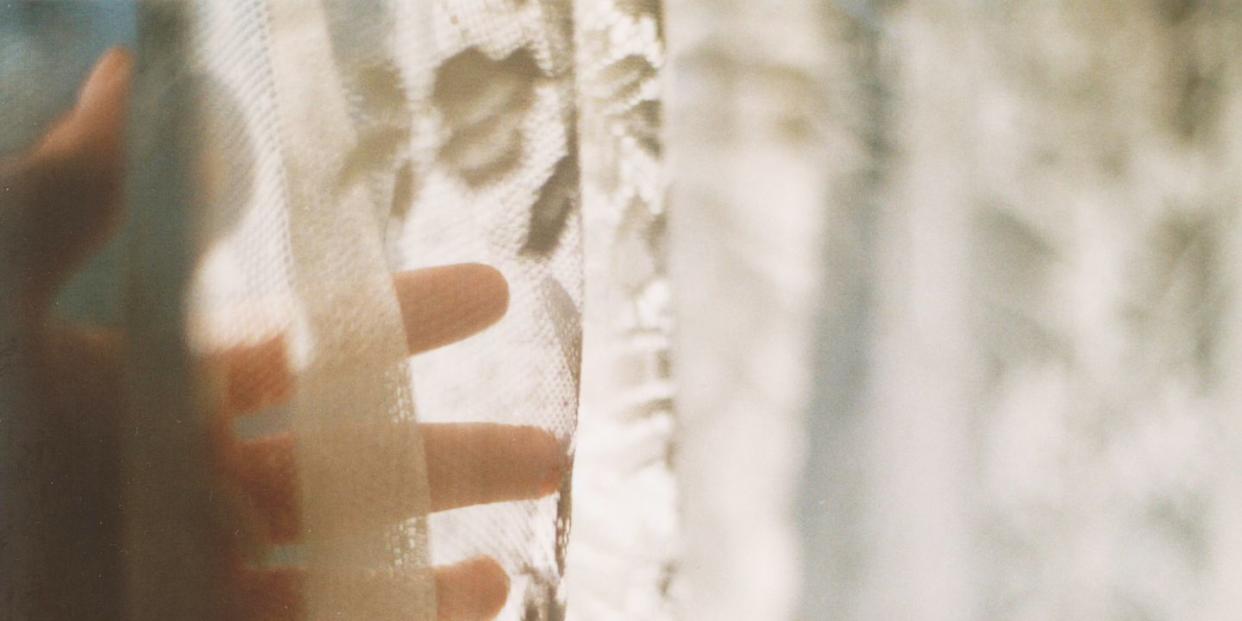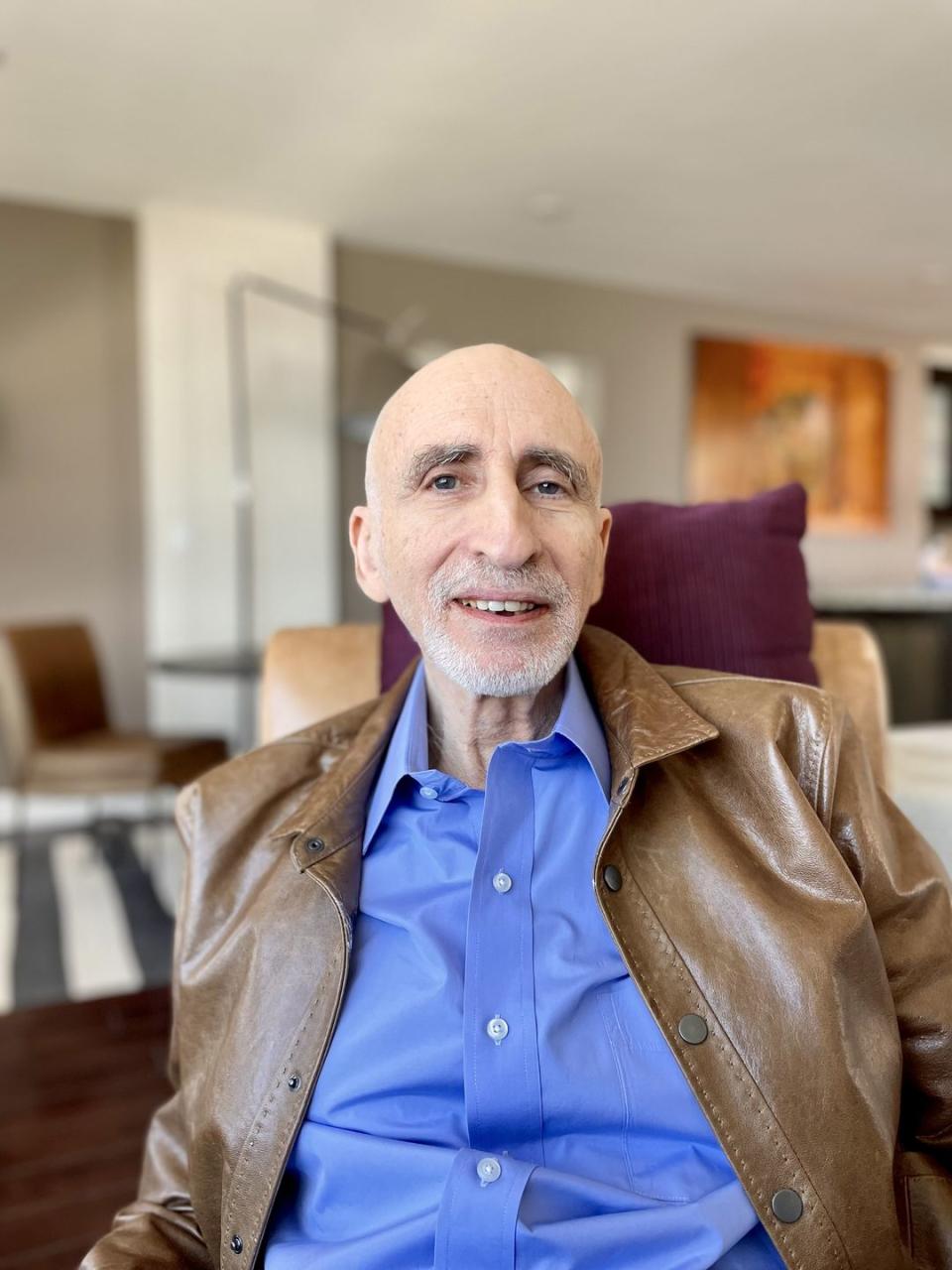4 things that could be holding you back – and what to do about them

Not many therapists have a full-length Netflix documentary made about them. But Phil Stutz isn’t your average therapist. He’s known for working with Hollywood actors, agents, writers and producers – John Cusack interviewed him for his book and Gwyneth Paltrow had him on her podcast – and the documentary was made by the actor Jonah Hill.
It’s very intimate – just the two of them talking for 90 minutes. Stutz has an unconventional approach to therapy, one that’s laced with humour – he breaks the ice at the start of sessions by saying, ‘Okay, entertain me!’ and his other oft-used line with clients is: ‘You’d better not come in here and dump all your sh*t on me.’
But Stutz is serious about getting people better. That’s why, unlike traditional therapists, he gives advice. When a client comes up against a challenge in a session, whether it’s psychological or external, he doodles a diagram to explain one of his ‘tools’ – the strategies he has invented to help people feel better. ‘A tool is something that can change your inner state immediately, in real time,’ he says when we meet on Zoom. ‘It takes an experience that’s normally unpleasant and turns this into an opportunity.’
I first heard of Stutz when his self-help book The Tools: 5 Life-Changing Techniques To Unlock Your Potential, written with like-minded therapist Barry Michels, became a global bestseller in 2012. He’s talking to me now because he’s back with a new book of essays, Lessons For Living: What Only Adversity Can Teach You – each of them a mini parable.
On camera, he has a kind, friendly uncle vibe, exactly as he does on the documentary. Interviewing over Zoom can be awkward because it’s easy to end up talking over the other person. But Stutz’s almost 40 years of listening to clients becomes obvious when, each time this happens, he stops talking and defers to me.
Stutz tells me that he became disillusioned with the usual method of therapy while training in his late 20s, when he noticed people weren’t feeling any better after sessions. ‘I didn’t like the fact that people were paying a lot of money and leaving with nothing. I thought, “How come they don’t rebel or go on strike?” Because I was rebellious by nature and because I felt psychotherapy wasn’t doing its job, I made my own protocol of how to treat somebody.’
Stutz set about developing tools that have the power to transform our usual unhelpful thinking and behaviours. He started to draw the tools so people could take them away each session to work on themselves. If the usual type of therapy is the therapist gently encouraging you to unravel the knots of your subconscious, Stutz’s method puts a big hunting knife in your hand and encourages you to start chopping.
We need the tools to deal with the inevitable pain and uncertainty we will all experience in our lives, according to Stutz. ‘The average person has no idea how to deal with adversity,’ he says. ‘What they do is cross their fingers and hope nothing bad happens.’
When I first read The Tools, I couldn’t get my head around the spiritual element. It’s based on the fact that there is an intelligent force driving life, a ‘Higher Power’. Do people find this hard to accept? ‘All you have to do is know there is something out there and that it’s intelligent,’ explains Stutz. ‘I advise people, “If you don’t like religion, just ignore it and do the exercises.” And if that doesn’t work for you, fire me!’
Most atheists find that following his instructions does change them, and that convinces them the tools do work, he says. It is his mission for you to have a session or watch the documentary or read one of his books, and feel empowered to change, to move forward. ‘If I can’t give somebody something they can both feel and, more importantly, act on, then I'm not doing my job,' he says.

Why are you feeling stuck?
You believe your inner saboteur
Stutz has a name for the inner voice that tells you that you’re not good enough and stops you doing things out of your comfort zone or keeping your promises to yourself: Part X. Part X is what keeps you stuck in repetitive negative thinking, too.
‘Part X is a part of you that gives you a problem you don’t need,’ he says, ‘because it tells you that achieving the goal of more money or the right possessions will fulfil you.’ Of course, with his A-list client base he has a bird’s-eye view of whether this is true. ‘People with money aren’t happier than other people,’ he says. ‘They have a few extra zeros on their bank balances, but other than that, it means nothing.’
Get unstuck: What you need to realise is that Part X is your enemy. Knowing this, you can fight it. But with what? By practising being grateful. ‘Gratefulness creates the physical sensation of being in the immediate presence of a positive, giving spiritual force,’ he says. To feel that force, simply spend 30 seconds thinking of things for which you are grateful.
You're fixated on having been wronged
Maybe you hear someone has been bad-mouthing you, or your boss gives you what you consider to be an unfairly negative work review. If you can’t speak out, you can get stuck with the anger and feeling wronged, going over and over what happened, imagining getting them back or righting the wrong you feel. This is you stuck in your ego, says Stutz.
Get unstuck: To get over your anger with that person and beyond the fixation, try his 'active love' tool.
Feel your heart expand to encompass the world of infinite love surrounding you. When your heart contracts back to a normal size, it concentrates all this love inside your chest.
Send all the love from your chest to the other person, holding nothing back.
When the love enters the other person, don't just watch – feel it enter; sense a oneness with them. Then relax and feel all the energy you gave away return to you.

You think there's something wrong with you
We all have a part of us that we try to hide, that feels weak, that we’re ashamed of. Following Jung, a founder of psychotherapy, Stutz calls this part the ‘shadow’. If we keep hiding this part, ‘we avoid the world and hide behind a facade,’ he explains. ‘We only show people the parts of ourselves we've determined and acceptable. That's why so many people feel like frauds.'
Get unstuck: Some of us try to escape our shadows by trying to become better, but this doesn't work. 'The cure for insecurity is accepting your shadow,' he says. In the documentary, Stutz talks Hill through the tool for doing this. 'Close your eyes; visualise a time in your life when you felt inferior, embarrassed, rejected or despondent,' he says. Hill describes his 14-year-old overweight and acne-covered self.
Then Stutz makes Hill ask his shadow how it feels about the way Hill treated it then. This is the healing part because, as Stutz explains, our shadows need this kind of attention from us, even 'to be celebrated, for us to feel proud of them. Having a good relationship with your shadow gives you a sense of wholeness.'
You can't find your purpose
It’s common for Stutz’s clients to come to him saying they feel stuck in life and can’t find their purpose. ‘People tell me, “If only I knew what my place was in the universe, what I was supposed to be doing, my depression would go away,”’he says. ‘But the thinking mind is not capable of figuring this out.’
Get unstuck: To feel your purpose, you need to act first. He promises if you work on your life force, you will feel a sense of forward motion, and your purpose will come from that. But how to act?
Stutz draws a pyramid that represents the life force, and divides it into the three sections. The bottom third is your relationship to your body: ‘That is, working out, your diet, regulating sleep.’
The next level up is your relationships with other people. The action you need to take here is to make time for and nurture your relationships.
The top level is your relationship with yourself. This means working on your personal growth, setting goals, learning new skills and getting to know your values. According to Stutz, ‘The greatest, happiest feeling is to know who you are, know where you are going and let yourself enjoy that.’
You Might Also Like



